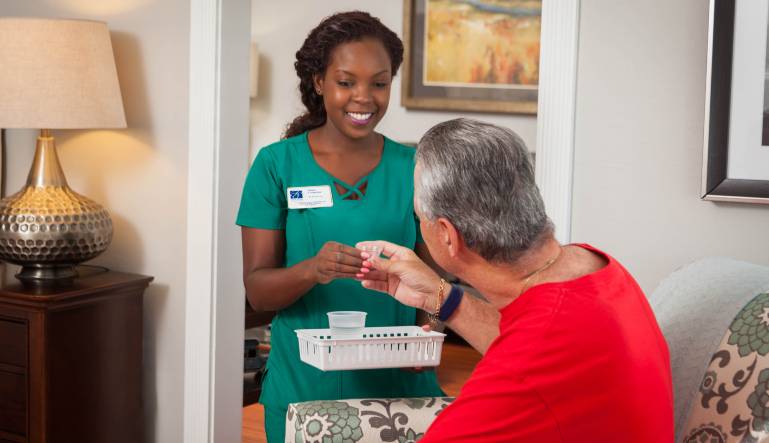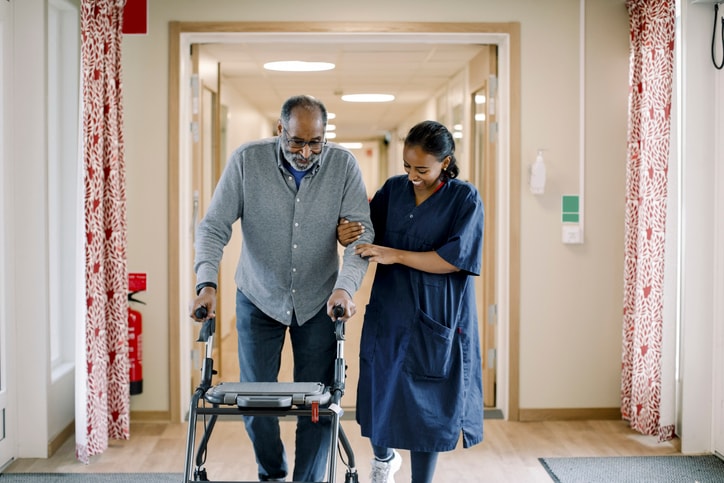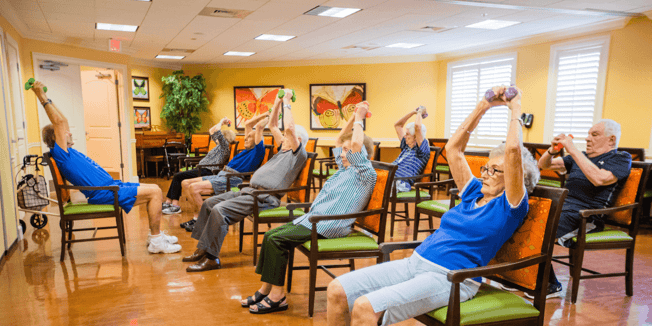Exactly How Assisted Living Facilities Enhance High Quality of Life for Those With Dementia
Helped living centers play a pivotal role in boosting the lifestyle for people with dementia by executing customized care strategies that deal with their distinct demands. These settings integrate structured tasks with psychological assistance, promoting a sense of neighborhood while making certain safety and self-reliance. The combination of engaging programs and family members participation further enhances the residents' experience. The complexities of dementia care proceed to evolve, triggering a more detailed examination of just how these facilities adapt and introduce to fulfill the challenges faced by citizens and their households. What implications does this have for future care designs?
Personalized Treatment Program
(Dementia Care Charlotte)In a lot of cases, individuals with mental deterioration need customized support that addresses their special needs and choices. Personalized care strategies are important in assisted living setups, as they ensure that each resident gets proper attention and solutions. These plans are created collaboratively, including health care specialists, caregivers, and member of the family to produce a thorough review of the person's clinical history, cognitive abilities, and personal interests.
A well-structured individualized care strategy commonly includes particular objectives associated with health and wellness administration, day-to-day activities, and social interaction. It represents the person's cognitive decrease while advertising independence and self-respect. Routine evaluations and updates to the treatment plan are essential, as they allow for adjustments based upon the resident's advancing condition and preferences.
Trick parts of these strategies often include medication management, behavior support approaches, and nutritional guidelines customized to the person's needs (Memory Care). By concentrating on personalized care, assisted living centers can cultivate a helpful setting that enhances the quality of life for individuals with mental deterioration, ultimately adding to their overall well-being and happiness. This personalized method values the originality of each local, ensuring they receive the compassionate care they need

Involving Tasks and Programs
Engaging residents in purposeful tasks and programs is crucial for enhancing the high quality of life for people with dementia. These activities not just give satisfaction however likewise boost cognitive feature and advertise social interaction, which can reduce feelings of isolation frequently experienced by locals.

In addition, customized programs are crucial in ensuring that each citizen's distinct preferences and abilities are acknowledged. This customized approach motivates involvement, enhances self-esteem, and gives a sense of success.
Moreover, regular evaluations of locals' rate of interests can help personnel change and adapt activities to far better fit developing needs. By prioritizing engaging tasks and programs, assisted living centers can considerably boost the overall experience my link and psychological wellness of people coping with mental deterioration.
Safe and Encouraging Atmosphere
Creating a secure and helpful environment is vital for people with dementia, as it straight affects their well-being and lifestyle. Aided living centers are created with certain features that promote security while fostering a sense of protection and comfort. These atmospheres prioritize availability, with formats that decrease complication and urge freedom, enabling homeowners to browse their environments a lot more easily.
Security actions, such as safe and secure entryways and exits, stop roaming and unauthorized gain access to, which are essential factors to consider for individuals with dementia (Memory Care). Team member are educated to recognize the distinct needs of homeowners, supplying tailored support and supervision to ensure their safety and security. The consolidation of calming shades and familiar objects can assist lower stress and anxiety and disorientation, producing a much more reassuring ambience.
Along with physical safety, emotional support is critical. Facilities often use staff who are not just knowledgeable in caregiving but likewise learnt empathy and communication, cultivating count on and rapport with locals. This all natural strategy adds to a nurturing environment where individuals feel valued and comprehended, ultimately enhancing their overall quality of life.
Social Interaction and Community
A supportive setting not only prioritizes security yet additionally cultivates chances for social interaction and community interaction, which are vital for individuals with dementia. In assisted living centers, organized activities and communal spaces encourage residents to link with one an additional, lowering feelings of seclusion usually experienced by those with cognitive impairments.
Social communication plays a considerable role in enhancing psychological health and cognitive feature (Assisted Living). Engaging with peers in group tasks such as video games, arts and crafts, or workout not just boosts cognitive abilities but also supports a sense of belonging. Facilities typically organize occasions that promote socialization, permitting residents to construct relationships and share experiences, which can be particularly valuable for those with mental deterioration
Furthermore, a vibrant community ambience can enhance the overall lifestyle for locals. Team member are educated to facilitate communications and assistance locals in creating significant links. By developing a culture of interaction, aided living centers assist individuals with dementia preserve social skills and boost their mood, ultimately adding to a more satisfying life experience. This community-oriented technique is essential in managing the challenges connected with dementia, promoting a sense of purpose and continuity for residents.
Family Members Participation and Assistance
Family involvement is important in sustaining people with mental deterioration in assisted living settings. Proactively involving relative not just offers emotional convenience to locals yet additionally promotes a sense of belonging and connection in their lives. When families take part in care planning and daily activities, they add beneficial understandings concerning the individual's choices, background, and requires, which can enhance tailored treatment.
Furthermore, normal household sees can substantially improve the psychological health of homeowners, minimizing sensations of isolation and stress and anxiety. Member of the family can likewise aid in preserving cognitive function by involving their enjoyed ones in familiar conversations and tasks. This communication strengthens individuality and assists citizens feel valued and understood.

Conclusion
In final thought, assisted living facilities significantly enhance the quality of life for people with mental deterioration through personalized care strategies, engaging activities, and a safe setting. Collectively, these aspects produce an alternative strategy to care that addresses the special demands of people with mental deterioration, advertising general health and self-respect.